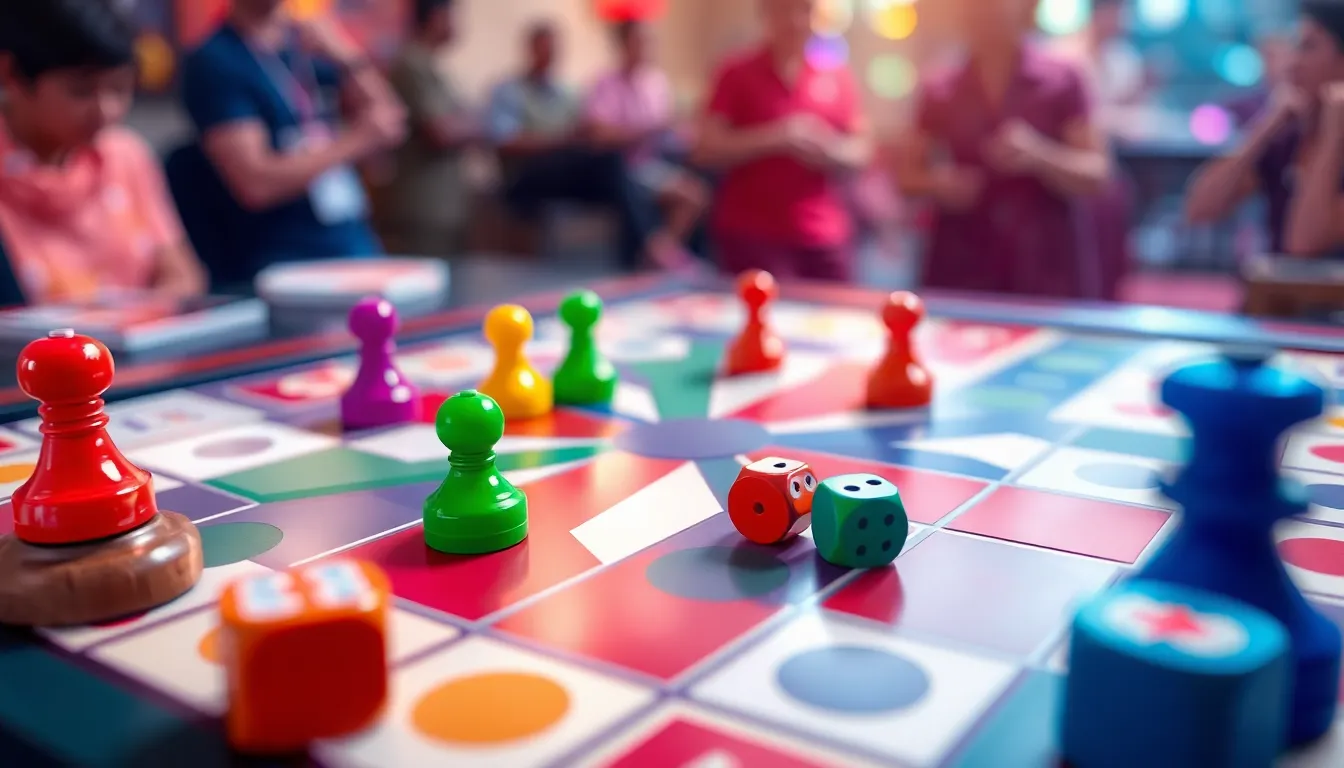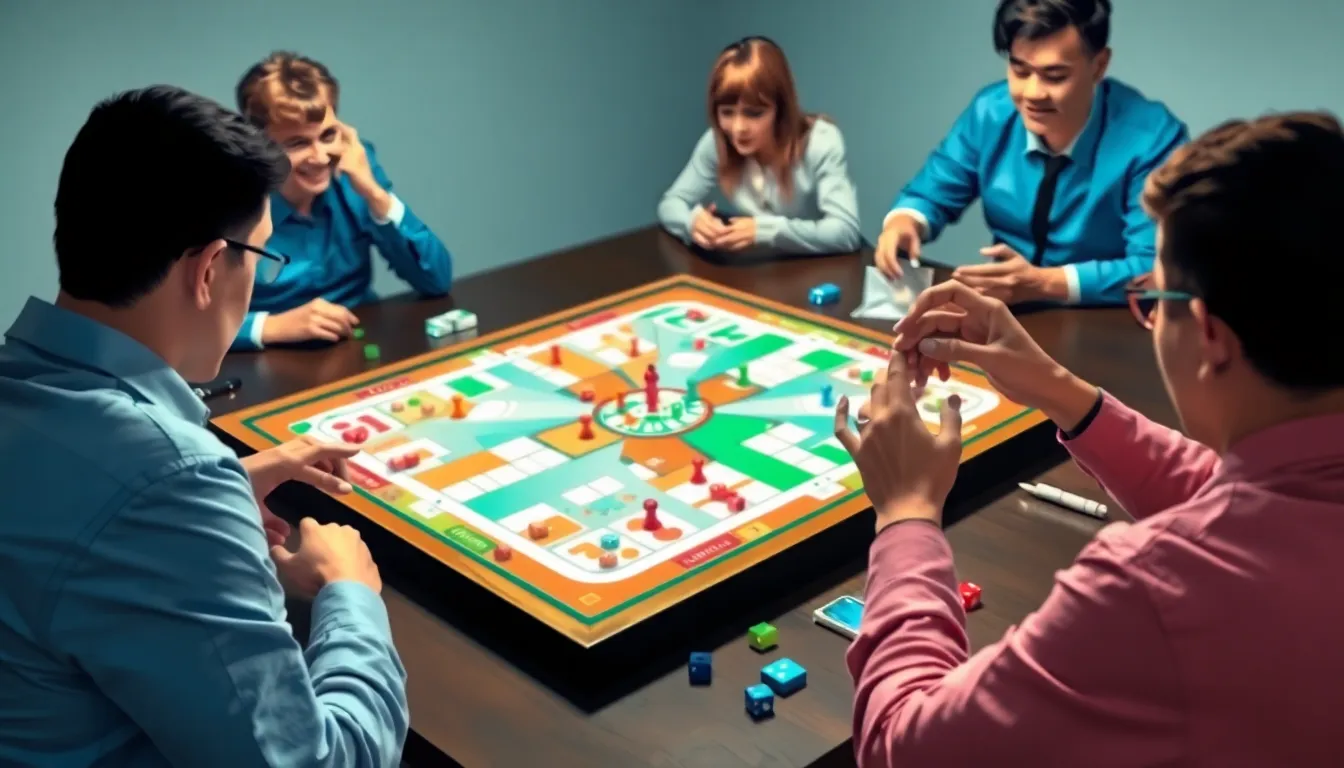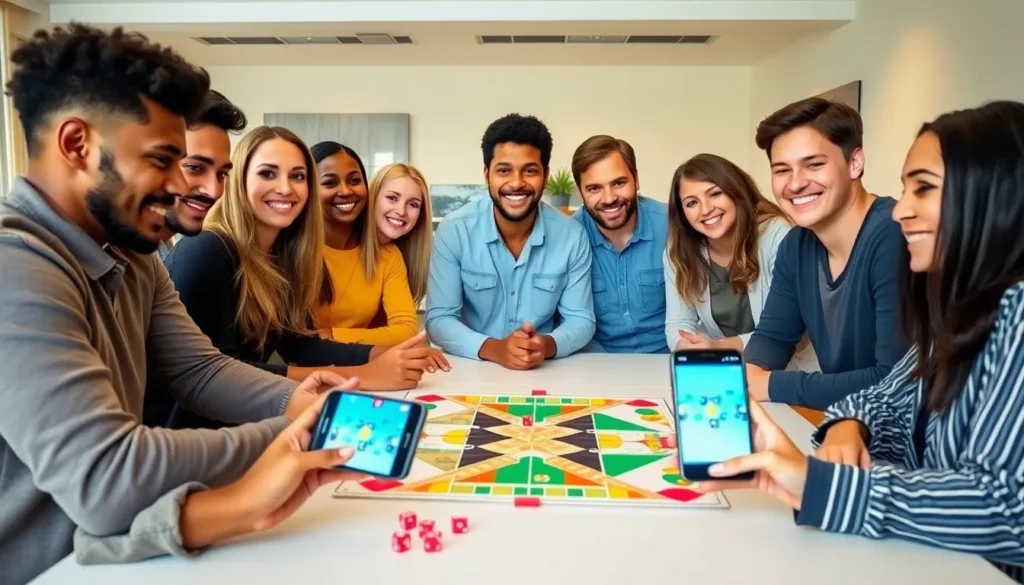In a world brimming with digital distractions, the classic game of Ludo has rolled its way back into the spotlight, proving that sometimes, simplicity is the ultimate sophistication. Imagine a game that brings friends and family together, all while igniting fierce rivalries and laughter. Enter the realm of Ludo game development companies, the masterminds behind this beloved pastime.
These companies are not just coding wizards; they’re the architects of fun. They craft engaging experiences that blend nostalgia with modern technology, ensuring players are glued to their screens—hopefully not too glued, or they might miss dinner! With the right Ludo game development partner, anyone can turn a simple idea into a viral sensation. So, let’s dive into the vibrant world of Ludo game development and discover what makes these companies the secret sauce behind your favorite board game turned digital delight.
Ludo Game Development Company
Ludo game development plays a crucial role in revitalizing this classic board game for the digital era. Game development companies create engaging platforms that merge nostalgic elements with contemporary technology.
Importance of Game Development Companies
Game development companies provide essential services in crafting digital Ludo experiences. They design user-friendly interfaces, ensuring that players enjoy intuitive navigation. Employing experienced developers and designers enhances the overall gaming experience. Companies analyze player feedback, allowing for continuous improvement and refinement. Creating robust multiplayer options fosters competitive play, bringing friends and families together.
Popularity of Ludo Game
Ludo’s popularity has surged in recent years, attracting diverse audiences worldwide. Millions of users engage through mobile apps and online platforms, reflecting the game’s universal appeal. Easy-to-understand rules contribute to its widespread enjoyment among players of all ages. Incorporating social features, such as chat and leaderboards, enhances player interaction. The blend of traditional gameplay with modern technology ensures Ludo remains relevant in the gaming landscape.
Key Features of Ludo Games


Ludo games combine traditional appeal with modern gaming features, attracting players worldwide. Game mechanics play a crucial role in creating engaging experiences.
Game Mechanics and Design
Game mechanics in Ludo revolve around rolling dice, moving tokens, and strategically capturing opponents. Players enjoy the blend of chance and strategy, making each game unique. The design often includes vibrant colors and lively themes that appeal to a broad audience. Developers integrate power-ups and special tokens to enhance gameplay dynamics. Rule variations, such as race-to-home formats, add depth, appealing to both novice and seasoned players.
User Interface and Experience
User interface design focuses on simplicity and intuitiveness to ensure seamless navigation. Clear icons and responsive buttons make it easy for players to interact with the game. Smooth animations enhance the experience while maintaining engagement during high-stakes moments. It’s vital for developers to incorporate elements like chat features and leaderboards to foster social connections. Personalization options, such as customizable avatars, allow players to express themselves, enriching overall enjoyment.
Choosing the Right Ludo Game Development Company
Selecting the appropriate Ludo game development company involves careful consideration of several key factors and asking insightful questions. This decision directly impacts the quality of the final product.
Factors to Consider
Experience stands as a crucial factor when evaluating development companies. Companies with a proven track record in game development, particularly for Ludo, demonstrate their capability to deliver high-quality projects. Moreover, a strong portfolio showcasing past projects provides insight into their design and technical expertise. Look for developers who prioritize user-friendly interfaces and robust multiplayer functions. Examine client testimonials that reveal satisfaction levels and reliability. Additionally, consider the company’s post-launch support options to ensure long-term success and game updates.
Questions to Ask Potential Developers
Inquiring about their development process is vital. What methodologies do they use to create Ludo games? It’s essential to understand how they incorporate player feedback into design improvements. Evaluate their familiarity with various platforms like mobile and web. Ask about the technologies they utilize for development to gauge their innovation. Clarify the project timeline and milestones to ensure alignment with your expectations. Finally, discuss budget parameters and mechanisms for managing costs throughout the project lifecycle.
Successful Ludo Game Development Case Studies
Ludo game development companies have achieved remarkable success with various products in the gaming market. Notable games stand out for their innovative designs and engaging user experiences.
Notable Ludo Games in the Market
Popular titles such as Ludo King and Ludo STAR have gained significant traction. These games incorporate modern technology while preserving traditional gameplay elements. Players enjoy features like real-time multiplayer options and customizable avatars. User-friendly interfaces attract first-time players and seasoned enthusiasts alike. Unique power-ups and varying board designs enhance replayability and keep users engaged. The presence of social features, like chat options, further fosters community interaction.
Lessons Learned from Successful Launches
Successful launches have provided valuable insights for Ludo game development. Focusing on user feedback has proven essential for continuous improvement. Iterative updates based on player suggestions help maintain interest over time. Ensuring cross-platform compatibility increases accessibility, allowing players to connect regardless of device. Clear communication of game rules and mechanics enhances user understanding and attracts a wider audience. Implementing effective marketing strategies boosts visibility and user acquisition, demonstrating the importance of promoting a well-crafted product.
Future Trends in Ludo Game Development
Ludo game development continues to evolve as technology advances, providing a glimpse into exciting future trends. Developers focus on integrating immersive technology and expanding market opportunities.
Integration of Technology
Augmented reality (AR) is transforming Ludo game experiences. Players engage in thrilling environments by interacting with digital elements overlaid in the real world. Likewise, artificial intelligence (AI) enhances gameplay by creating intelligent opponents that adapt to player strategies. Cloud gaming offers seamless access across multiple devices, allowing players to enjoy games anytime and anywhere. Blockchain technology also gains traction, introducing transparency in gameplay and ensuring secure transactions for in-game purchases. These technological innovations shape the future of Ludo, ensuring developers stay ahead in a competitive marketplace.
Market Expansion Opportunities
Mobile gaming continues to drive Ludo’s popularity globally. Emerging markets present substantial growth potential as smartphone penetration increases. Localization becomes essential for success; adapting Ludo to specific cultural preferences attracts diverse audiences. Social media integration enhances user engagement and facilitates community-building among players. Multiplayer options create opportunities for tournaments and competitions, fostering excitement and engagement. Collaborations with well-known brands and franchises can draw in a broader audience, further expanding market reach. These strategies position Ludo game development companies to capitalize on future trends and enhance their gaming portfolios.


